Developing wisdom can take many years of experience. We slowly acquire this innate sense of discernment through our failures and triumphs.
With wisdom, you learn and grow from past mistakes rather than be ashamed. You can admit when you were wrong instead of blaming others and your circumstances for failure. In other words, you finally grow up. You become better at asking for help and understand that it doesn’t mean you’re weak or helpless. You learn to be self-reliant and teachable at the same time.
You evolve into someone more interested in showing compassion and empathy rather than taking a self-righteous approach. As a result, you begin to influence others simply by setting a good example. Those around you become very interested in your actions, not just your words.
Your life becomes a living testimony.
Thankfully, wisdom is a skill that you can develop at any age. You can put it to good use in your life to make better decisions, build relationships, and nurture success.
So, how can you use your years of wisdom for a better you? Hold tight; you are about to find out!
What is Wisdom?
Wisdom is the ability to think or act utilizing knowledge, experience, understanding, common sense, and insight. It is accumulated knowledge, erudition, or enlightenment.
Researchers are developing many theories to define wisdom. A leading theory developed by psychologists Paul Baltes and others defines wisdom as “expert knowledge in the fundamental pragmatics of life that permits exceptional insight, judgment, and advice about complex and uncertain matters.” That encompasses five key components: rich procedural knowledge, rich factual knowledge, an understanding of different life contexts, an awareness of the relativism of values and priorities, and the ability to recognize and manage uncertainty. These criteria are measured by introducing hypothetical scenarios and assessing what participants would consider or do in those situations.
Is Wisdom the Same as Knowledge?
No. Wisdom includes knowledge, experience, pattern recognition, empathy, engagement, and more.
Think of wisdom as the application of knowledge.
Knowledge is knowing particular pieces of information regarding specific topics. It acts as the foundation for building our experiences from learning and failing.
Wisdom, however, is applying and putting this information to good use. You can’t claim wisdom until you learn and accept your mistakes and accomplishments.
Only then can you improve your understanding of the world and make better decisions in almost every situation.
At its core, wisdom is realizing that life isn’t knowing all the correct answers but knowing the right questions to ask. This attribute is what separates the wise from the “know-it-alls.”
The Link Between Wisdom and the Microbiome (Say Whaaa?)
A recent study has shown that a healthier gut microbiome is typically characterized by phylogenetic diversity and richness. Yet, even more fascinating is that these healthy microbiomes were almost always associated with higher levels of wisdom and compassion.
One of the tenets of being wise is empathizing and seeing things from other people’s viewpoints. It also allows you to hone in on the needs, motivations, and fears of others.
This study also found that wisdom often correlates with fewer bouts of loneliness. This could be because wise people are often more interested in their emotional needs.
They’re also more willing to try new things and meet new people because they know it’s a great way to expand their horizons and open the door to a unique learning experience.
Ways that Wisdom Can Improve Your Life
Here are a few ways that wisdom can make you a better you:

Better Decision-Making Skills:
Although wisdom can be hard to define, you usually recognize it when you see it. Frequently, it shows up in the quality of one’s decisions. Let’s face it. Wisdom makes you better at making quality decisions. When you apply wisdom to your decision-making, you can keep your immediate needs in mind while pursuing your long-term objectives. This ability allows you to experience joy in the present moment and excitement about the future.
You will tend to make decisions where everyone wins, not just you and yours.
Better Personal Boundaries
Wisdom also brings the right balance between your boundaries and those of others. So, you can contribute at home, work, and in your community without feeling the burnout that usually comes with taking on more than you can handle.
This ability to effectively navigate life could be one of the factors that wisdom is linked to lower anxiety, stress, and other mental health issues.
Better Life Balance
Have you ever noticed how balanced the lives of wise people are? An attribute of wisdom is life balance. They invest time, money, and effort in different areas of their lives. They don’t put all their eggs in one basket. They stand for the common good, yet they also meet their needs. They may pursue career goals without neglecting friends and family.
Better Emotional Awareness
Knowing how to be aware of your feelings and emotions can help you take action when you start feeling overwhelmed. Also, when wisdom is your guide, you tend to think before you act.
Better at Embracing Change
Allowing wisdom to guide you will give you a more positive mindset. It makes accepting change and dealing with hard times more effortless.
Instead of fretting about situations clearly out of your control, you reach for your oxygen mask to strengthen yourself to meet the challenges that change requires.
Having an open-minded and hopeful approach to life is also a great way to see things more clearly, which leads to better decision-making.

Conclusion
Unfortunately, wisdom doesn’t always come with advanced age. More important than age is one’s hunger to cultivate wisdom in one’s life.
Learning how to use your years of wisdom is critical for living a life of fulfillment and success. We have suggested practical ways to put your wisdom to good use. Now, it’s up to you to apply them to everyday life.
The time and effort you invest into cultivating and applying wisdom to your life will undoubtedly be worth it in the long run.
Be well + prosper,
Elaine xx
